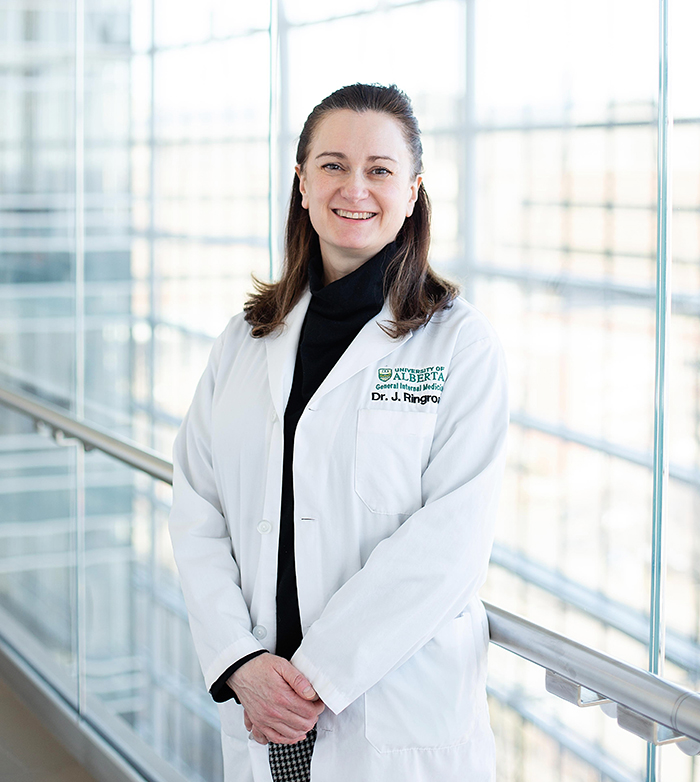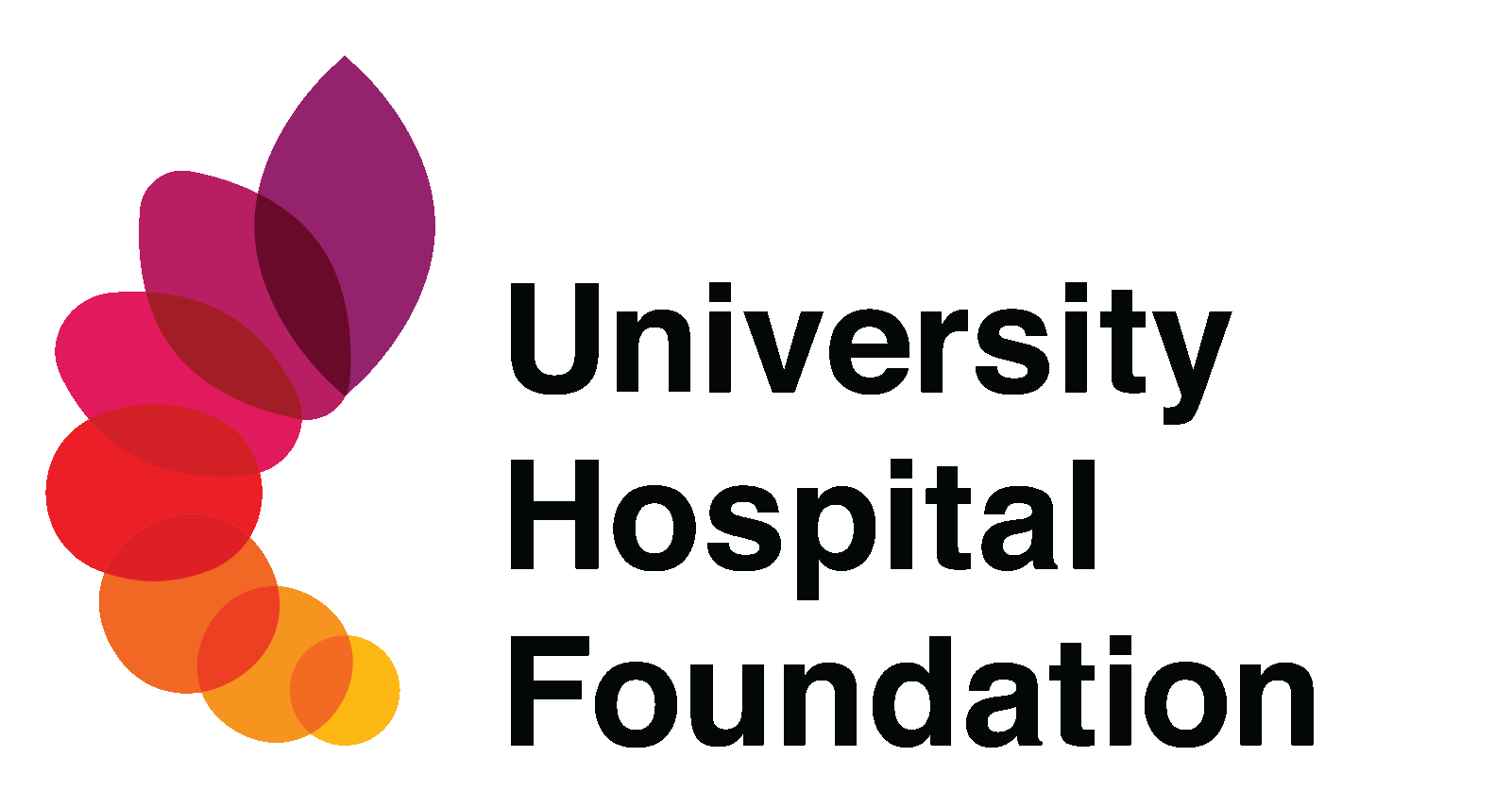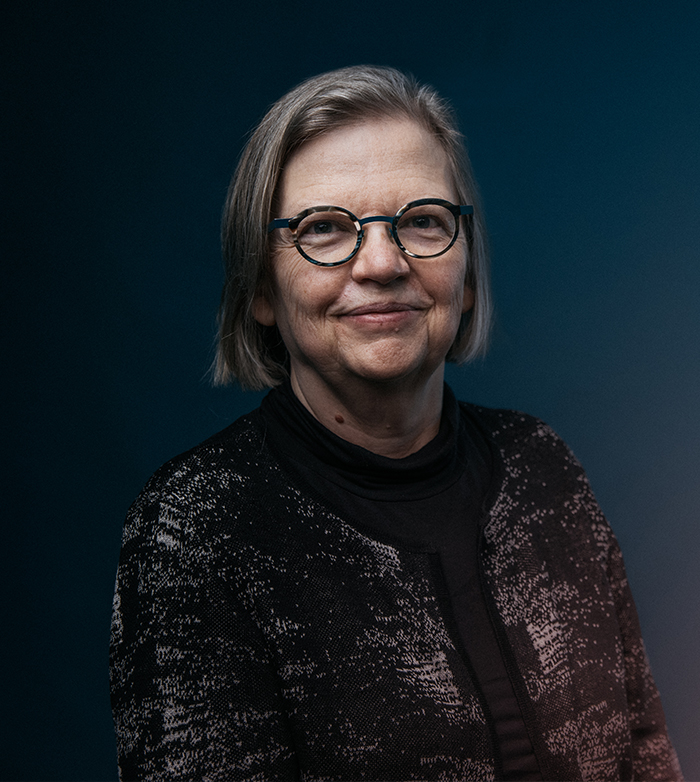Kaye Competition funds ground-breaking research
Kaye Competition funds ground-breaking research to save lives and improve patient care

Pictured: Dr. Jennifer Ringrose
Pictured: Dr. Wendy Johnston
Alberta researchers are on the cusp of discoveries that will save and transform the lives of patients, thanks to funding through the University Hospital Foundation’s annual Kaye Competition.
In December, 2020, seven Edmonton-based researchers were awarded a total of $948,470 to undertake trailblazing medical studies and patient-care programs. The competition, a partnership between the University of Alberta Hospital (UAH), Kaye Edmonton Clinic (KEC) and the University Hospital Foundation, was made possible thanks to a $30-million donation by local philanthropist and retired businessman, Donald Kaye, in 2012. Thanks to this incredible act of generosity—one of the largest donations in Canadian health care history—Alberta researchers receive critical funding to take on projects that might otherwise never get off the ground.
“Donald Kaye’s gift to Albertans and Canadians was to inspire and enable researchers and multidisciplinary clinicians to make a difference in the lives of people facing life-changing illness,” says Dr. Jodi L. Abbott, President and CEO of the University Hospital Foundation. “We are honoured to ensure that his gift keeps on giving, year after year, in pursuit of his goal.”
To date, the Kaye Competition has awarded $3.23 million to researchers and clinical teams who are using innovative approaches, new partnerships and bold ideas to bring the right people, resources and solutions together. Around 75 per cent of the funding is earmarked for critical work on cancer, pulmonary diseases, diabetes and neurology.
All of the funded projects strive for innovation or quality improvement—the idea that we can systematically improve the ways care is delivered to patients.
“The focus on quality improvement in the Kaye Competition came straight from Mr. Kaye’s vision and fit naturally with the philosophy of the hospital,” says James Simon, Program Manager, Continuous Improvement at the University of Alberta Hospital. “Quality improvement is embedded into all aspects of how the UAH/ KEC supports patients, families and our frontline providers through all aspects of the care journey.”
For award-recipient Dr. Jennifer Ringrose, Kaye Competition funding will improve the care of hypertension patients. Hypertension, or high blood pressure, is the number-one cause of death and disability worldwide. It can lead to everything from heart attack to kidney failure. The gold-standard test for this condition is “ambulatory monitoring,” a time-consuming process that requires a patient to visit a clinic, strap on equipment and wear it for 24 hours. Around 80,000 Albertans are diagnosed with hypertension annually, yet less than 0.5 per cent undergo this form of testing due to the cost and inconvenience.
“It’s clear from the numbers people aren’t accessing it the way they should,” says Ringrose. But she has a theory: home blood-pressure monitoring, performed with affordable, accessible devices, might offer nearly the same accuracy with a lot less hassle and stress for patients. Her Kaye Competition-funded research study will examine if home testing can be used as an alternative to ambulatory monitoring for diagnosing hypertension in a population of around 200 patients over the next year.
“We’re so grateful to the University Hospital Foundation and the University of Alberta Hospital for this opportunity because we feel really strongly that it will change patient care,” she says.
Alleviating patient suffering is a crucial focus for this year’s award recipients, including Dr. Wendy Johnston. Johnston specializes in ALS, a progressive nervous system disease that affects around 2,500 Canadians annually.
ALS is ultimately fatal, but medication can slow and manage the disease if it’s caught early. “The disease course can be very fast for some,” says Johnston. “Around half of those diagnosed have life-threatening complications within three years.” Unfortunately, all too often, physicians aren’t able to recognize the signs or refer patients quickly enough.
ALS causes progressive weakness in the body. At first, it may not appear severe. “If a person has weakness of the leg, it may not be perceived as urgent,” says Johnston. “It only becomes urgent when the physician can see that the whole leg is weak. But by then, you’ve lost time.”
By monitoring ALS patients over the next year, and working with local doctors, Johnston and her team hope to uncover barriers to diagnosis, and improve those odds. They’ll work in partnership with Alberta’s Physician Learning Program to create an education and information-sharing program for doctors and share their findings with the ALS Societies of Alberta and Canada to get the word out among patients.
Between the promise of speedier diagnoses and exciting emerging therapies on the horizon, Johnston says breakthroughs are coming soon for ALS patients. “It’s a hopeful time,” she says.
Thanks to the Kaye Competition, that’s true for more patients than ever before, and it’s only going to get better.
To learn more about the Kaye Competition winners and their projects, visit GiveToUHF.ca/Kaye-Competition.
Share this article
Facebook
Twitter
LinkedIn

